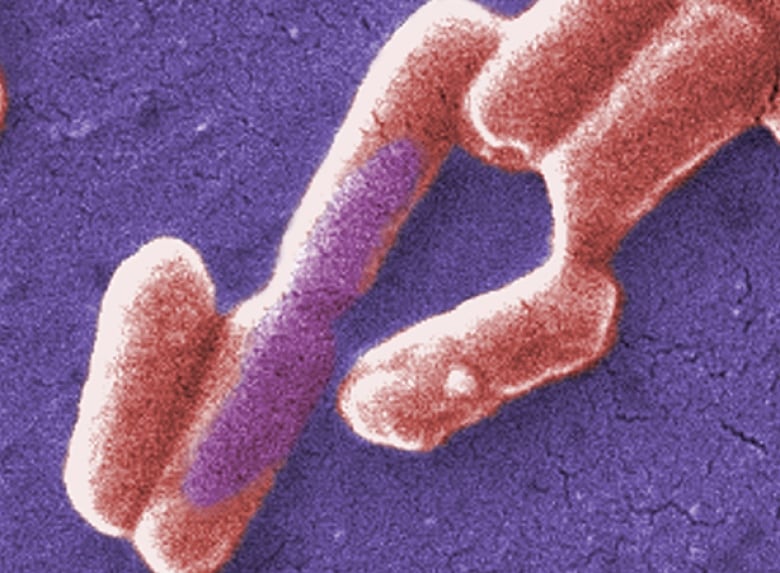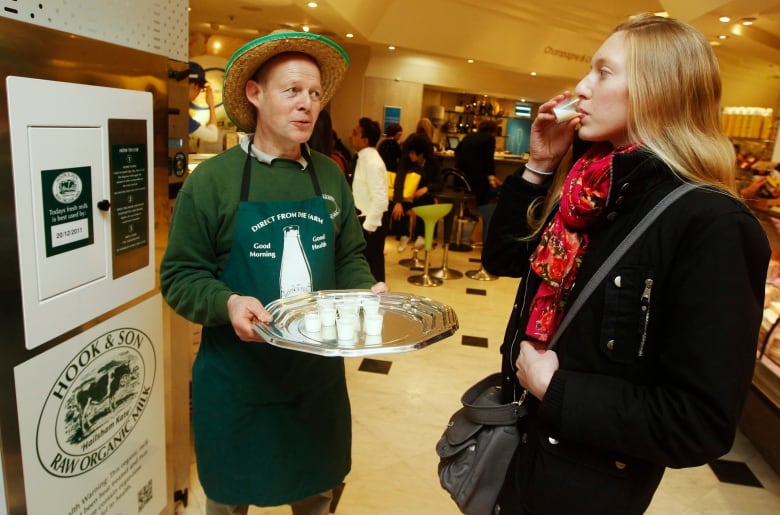
A man’s latest attempt to challenge B.C.’s rules on unpasteurized milk — also known as “raw milk” — was dismissed in the province’s Supreme Court.
Gordon S. Watson sought a judicial review of the province’s regulation of unpasteurized milk as a health hazard subject to “significant restrictions” under the Public Health Act.
Justice Bill Veenstra wrote Watson mostly wanted a legal opinion that a practice known as “cow-sharing” allows raw milk distribution and to restart a previous constitutional challenge. Watson also sought “various declarations” and an injunction against the enforcement of raw milk rules.
But Veenstra noted Watson had been before the courts in 2010 and 2013 on raw milk issues and dismissed his latest effort under “res judicata” — a legal doctrine which prevents relitigating matters that have already been decided.

Health Canada notes that milk must be pasteurized if it’s sold in Canada. It says since Ottawa made pasteurization mandatory in 1991, food poisoning incidents have “dramatically decreased.”
It says raw or unpasteurized milk can contain microorganisms such as salmonella, E. coli, and listeria, which can cause fever, vomiting, diarrhea, kidney failure, miscarriage and even death.
But Canada is also the only G7 country where buying and selling raw milk is illegal in every form, and advocates are lobbying legislators across the country to loosen those laws.

‘Cow-sharing’
The decision, handed down in September but posted online Monday, outlined that Watson has been involved for nearly 30 years in what he calls the ‘Campaign for Real Milk.’
“Mr. Watson and others involved in that campaign believe that raw milk, if properly handled, is safe and has health benefits,” Veenstra’s ruling stated.
“They point to various European countries and U.S. states where raw milk is available to consumers, although subject to careful regulation and argue that British Columbia consumers should have the ability to choose to drink raw milk.

“They say that rather than prohibit the sale of raw milk, the government should ensure that it is produced safely.”
The decision notes that in the early 21st century, Watson and others heard about “cow-sharing.”
“This concept was intended to take advantage of a government policy that the provisions of the Public Health Act would not be enforced in respect of raw milk consumption by dairy farmers themselves,” the judge wrote.
“Under the cow‑sharing concept, a group of people interested in consuming raw milk could purchase interests in a dairy cow, contribute to the costs of having a farmer care for the cow, and receive their dividends from that fractional ownership in the form of raw milk.”
The judge noted in 2005 that Watson was told by a provincial official that a cow’s owner can drink that bovine’s raw milk — provided they have “direct care and control” of the animal.
“Mr. Watson sees this restrictive approach as unreasonable, and he has been working for years to persuade the government to change its mind,” Veenstra wrote. “He is of the view that people who own even a fractional ownership in a cow should not have their property rights interfered with.”
In 2008, Fraser Health ordered a Chilliwack cow-share operation Watson belonged to, “Home on the Range,” to stop distributing raw milk. An injunction was sought against the operator and anyone else who may have been involved.
Watson came forward as one of those involved when the matter came before the courts in 2010. He unsuccessfully spoke against the injunction.
Government fails in bid to restrict future court efforts
In 2013, Fraser Health initiated proceedings to find Watson and another man in contempt, presenting evidence they were once again operating a cow share on the same farm.
Despite making arguments that the raw milk rules infringed Charter rights, the two were found guilty and handed a suspended sentence and probation.
Since 2013, Veenstra wrote, Watson has corresponded with the government “with respect to his views of the health benefits of raw milk.”
“He has continued to follow scientific information on the subject,” the judge wrote. “He has also made several freedom of information requests focused on both the information collected by the government on raw milk, the advocacy efforts of those opposed to raw milk consumption, and the enforcement of the Public Health Act in respect of raw milk in various locations around the province.”
Watson, Veenstra added, has commenced “various” proceedings challenging the constitutional validity of the raw milk rules since 2013, but nothing has gone to a hearing.
The attorney general sought an order barring Watson from bringing forth further raw milk claims without the court’s permission and for him to pay $1,000 in costs.
Veenstra declined to restrict Watson’s use of the courts and ordered him to pay $500.